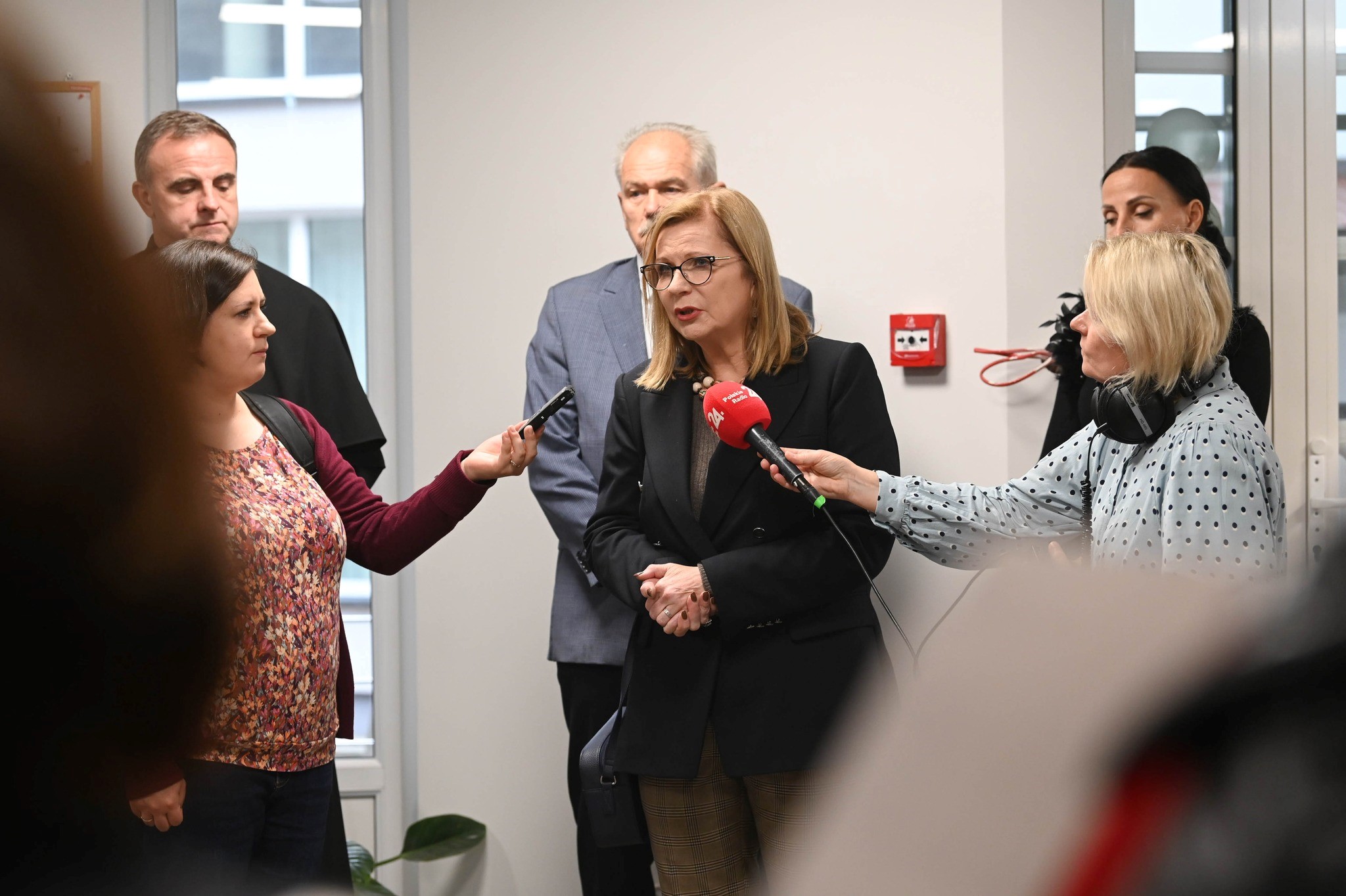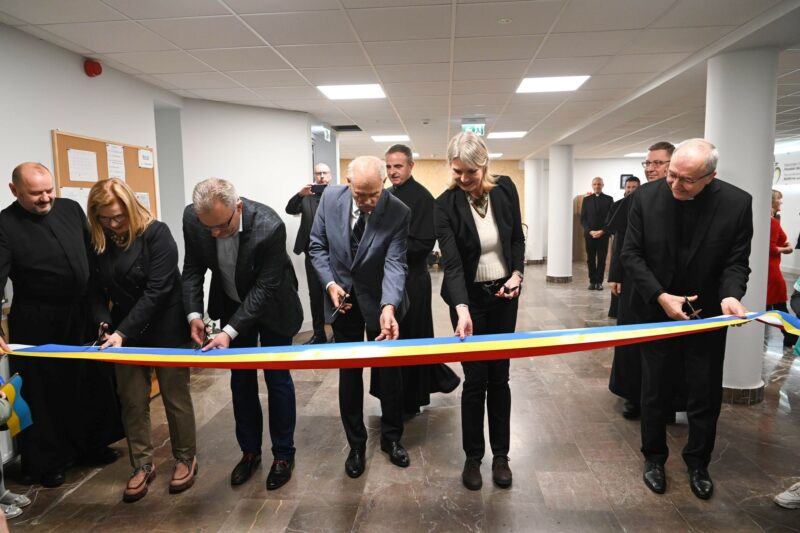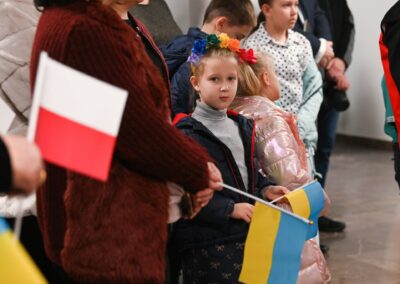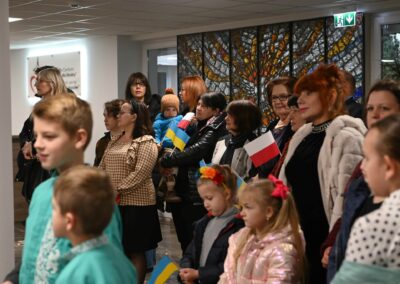According to current UN estimates, approximately 14 million people have been displaced from Ukraine since the outbreak of the war. Children and young people who arrive in neighbouring European countries from war zones are often severely traumatised and find it difficult to return to their new everyday lives. With the funds from the EduCare Europe Fund, the PATRIZIA Foundation supports these children and young people and their accompanying persons. The focus is on the goal of reintroducing them to educational opportunities as quickly and gently as possible. With the opening of the “Future for Ukraine” centre near Warsaw, this goal has now been taken another big step closer.
Housing & Education
The Future for Ukraine Centre is located in Ozarow Mazowieckie, about 30 kilometres south of Warsaw. It is run by a long-standing partner organisation of the PATRIZIA Foundation, the Pallottine Order. The facility offers 96 Ukrainian children and their mothers or accompanying persons safe accommodation, food and educational and psychological help to cope with their situation. Specially trained staff help the children to process and overcome trauma in order to be able to participate in educational opportunities again as quickly as possible. In cooperation with the United Nations High Commissioner for Refugees (UNHCR), the centre therefore also provides additional extracurricular educational opportunities as well as laptops and PCs for the media room.
High-profile guests & moments of hope
In addition to the Rector General of the Pallottine Fathers, Zenon Hanas, and Angelika Jacobi, Managing Director of the PATRIZIA Foundation, a number of high-ranking politicians from Poland also attended the opening ceremony of the “Future for Ukraine” Centre on 16 November.

Among them: the Deputy Marshal of the Polish Parliament (Sejm), Małgorzata Gosiewska, Adam Struzik, Marshal of Mazovia and the UNHCR Protection Officer in Warsaw, Batyr Sapbiyev. Angelika Jacobi: “It was a moment of hope when we cut the ribbon and it suddenly became so clear that the future can happen here again – at least in the form of paving the way for it. That makes me personally very proud.”
Recognising needs, healing trauma
To support the local teachers in their work, the PATRIZIA Foundation in Warsaw offers “Train the Teacher” courses. In these trainings, Ukrainian and Polish teachers learn how to respond to the needs of traumatised children in the best possible way and thus facilitate their way back into everyday school life. The individual developmental phases of young and older children alike are taken into account. The “Train the Teacher” courses are led by two experienced emergency educators from the PATRIZIA Foundation, Beatrice Rutishauser Ramm and Orsi Fulop. The basis of the training is the so-called “Essence of Learning (EoL)”, an emergency pedagogical approach that has proven very successful in a wide variety of crisis situations, but especially in dealing with traumatised children. Further “Train the Teacher” courses are to follow at regular intervals. These are also financed by the EduCare Europe Fund.
Further support also in 2023
The PATRIZIA Foundation would also like to support refugee children and young people next year with the resources of the EduCare Europe Fund. Low-threshold, integrative offers in the form of courses, school support, cultural as well as leisure activities and emergency educational intervention remain at the centre of all activities.
For this, we need your help – and are happy about your donation. Because: every euro counts, gives hope and makes the future possible.



